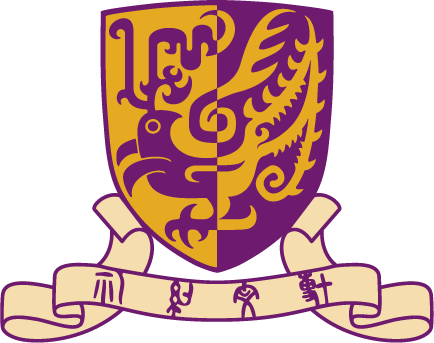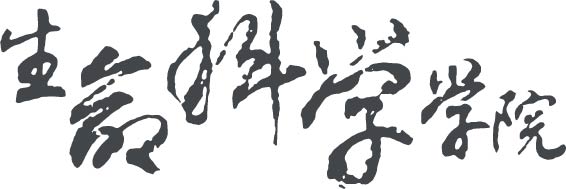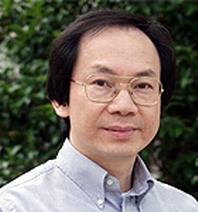-
Fan C, Chen J, Wang Y, Wong YS, Zhang Y, Zheng W, Cao W, Chen T: Selenocystine potentiates cancer cell apoptosis induced by 5-fluorouracil by triggering ROS-mediated DNA damage and inactivation of ERK pathway. Free Radical Biology & Medicine 2013. (in press) (http://dx.doi.org/10.1016/j.freeradbiomed.2013.07.002)
-
Wang YD, Wang X, Wong YS: Generation of selenium-enriched rice with enhanced grain yield, selenium content and bioavailability through fertilization with selenite. Food Chemistry 2013, 141(3):2385-2393.
-
Huang Y, He L, Liu W, Fan C, Zheng W, Wong YS, Chen T: Selective cellular uptake and induction of apoptosis of cancer-targeted selenium nanoparticles. Biomaterials 2013, 34(29):7106-7116.
-
Gao S, Chen T, Choi MY, Xue J, Wong YS: Cyanidin reverses cisplatin-induced nephrotoxicity through inhibition of ROS-mediated DNA damage and modulation of ERK and AKT pathways. Cancer Letters 2013, 333(1):36-46.
-
Liu Y, Chen T, Liu J, Wong YS: Identification of fluorescent ruthenium complexes containing imidazole derivatives as a new class of apoptosis inducers by living cell real-time imaging. MedChemComm 2013, 4(5):865-869.
-
Su J, Lai H, Chen J, Li L, Wong YS, Chen T, Li X: Natural borneol, a monoterpenoid compound, potentiates selenocystine-induced apoptosis in human hepatocellular carcinoma cells by enhancement of cellular uptake and activation of ROS-mediated DNA damage. PLOS ONE 2013, 8(5): e63502.
-
Liu C, Liu Z, Li M, Li X, Wong YS, Ngai SM, Zheng W, Zhang Y, Chen T: Enhancement of auranofin-induced apoptosis in MCF-7 human breast cells by selenocystine, a synergistic inhibitor of thioredoxin reductase. PLOS ONE 2013, 8(1): e53945.
-
Wang YD, Wang X, Ngai SM, Wong YS: Comparative proteomics analysis of selenium responses in selenium-enriched rice grains. Journal of Proteome Research 2013, 12:808-820.
-
Luo Y, Chen T, Huang X, Wang Y, Wong YS, Zheng W: Synthesis and anticancer activity of a novel selenadiazole derivative and its interaction with bovine serum albumin. Acta Chimica Sinica 2012, 70(11):1295-1303.
- Wang Y, Wang X, Wong YS: Proteomics analysis reveals multiple regulatory mechanisms in response to selenium in rice. Journal of Proteomics 2012, 75(6):1849-1866.
- Liu W, Li X, Wong YS, Zheng W, Yu Y, Zhang Y, Cao W, Chen T: Selenium nanoparticles as a carrier of 5-fluorouracil to achieve anticancer synergism. ACS Nano 2012, 6(8):6578-6591.
- Zheng S, Li X, Chen T, Zheng W, Wong YS: PEG-nanolized ultrasmall selenium nanoparticles overcome drug resistance in hepatocellular carcinoma HepG2 cells through induction of mitochondria dysfunction.International Journal of Nanomedicine 2012, 7:3939-3949.
- Li L, Wong YS, Chen T, Fan C, Zheng W: Ruthenium complexes containing bis-benzimidazole derivatives as a new class of apoptosis inducers. Dalton Transactions 2012, 41:1138-1141.
- Luo Y, Li X, Huang X, Wong YS, Chen T, Zhang Y, Zheng W: 1,4-Diselenophene-1,4-diketone triggers caspase-dependent apoptosis in human melanoma A375 cells through induction of mitochondrial dysfunction. Chemical and Pharmaceutical Bulletin 2011, 59:1227-1232.
- Li Y, Li X, Wong YS, Chen T, Zhang H, Liu C, Zheng W: The reversal of cisplatin-induced nephrotoxicity by selenium nanoparticles functionalized with 11-mercapto-1-undecanol by inhibition of ROS-mediated apoptosis. Biomaterials 2011, 32:9068-9076.
- Zhang H, Chen T, Jiang J, Wong YS, Yang F, Zheng W: Selenium-containing allophycocyanin purified from selenium-enrich Spirulina platensis attenuates AAPH-induced oxidative stress in human erythrocytes through inhibition of ROS generation. Journal of Agricultural and Food Chemistry 2011, 59:8683-8690.
- Liu Y, Zhang X, Zhang R, Chen T, Wong YS, Liu J, Zheng WJ: Ruthenium porphyrin complexes induce apoptosis by inhibiting the generation of intracellular reactive oxygen species in the human hepatoma cell line (HepG2).European Journal of Inorganic Chemistry 2011, 2011:1974-1980.
- Li XL, Chen T, Wong YS, Xu G, Fan RR, Zhao HL, Chan JCN: Involvement of mitochondrial dysfunction in human islet amyloid polypeptide-induced apoptosis in INS-1E pancreatic beta cells: an effect attenuated by phycocyanin.The International Journal of Biochemistry & Cell Biology 2011, 43:525-534.
- Chen T, Mei WJ, Wong YS, Liu J, Liu Y, Xie HS, Zheng WJ: Chiral ruthenium polypyridyl complexes as mitochondria-targeted apoptosis inducers.MedChemComm 2010, 1:73-75.
- Lau WS, Chen T, Wong YS: Allyl isothiocyanate induces G2/M arrest in human colorectal adenocarcinoma SW620 cells through down-regulation of Cdc25B and Cdc25C. Molecular Medicine Report 2010, 3:1023-1030.
- Chen T, Liu Y, Zheng WJ, Liu J, Wong YS: Ruthenium polypyridyl complexes that induce mitochondria-mediated apoptosis in cancer cells. Inorganic Chemistry 2010, 49:6366-6368.
- Zheng L, Si J, Wong YS: Ergosterol peroxide and 9,11-dehydroergosterol peroxide from Ganoderma lucidum mycelia suppress the growth of human breast adenocarcinoma MCF-7 cells. International Journal of Medicinal Mushrooms 2009, 11:249-253.
- Li XL, Xu G, Chen T, Wong YS, Zhao HL, Fang RR, Gu XM, Tong PCT, Chan JCN: Phycocyanin protects INS-1E pancreatic beta cells against human islet amyloid polypeptide-induced apoptosis through attenuating oxidative stress modulating JNK and p38 mitogen-activated protein kinase pathways. The International Journal of Biochemistry & Cell Biology 2009, 41:1526-1535.
- Kong C, Lam C, Chiu L, Ooi VEC, Sun SSM, Wong YS: A rice polyphenol, cycloartenyl ferulate, elicits apoptosis in human colorectal adenocarcinoma SW480 and sensitizes metastatic SW620 cells to TRAIL-induced apoptosis. Biochemical Pharmacology 2009, 77:1487-1496.
- Chen T, Wong YS: Selenocystine induces caspase-independent apoptosis in MCF-7 human breast carcinoma cells with involvement of p53 phosphorylation and reactive oxygen species generation. The International Journal of Biochemistry & Cell Biology 2009, 41:666-676.
- Chen T, Wong YS, Zheng W, Bai Y, Huang L: Selenium nanoparticles fabricated in Undaria pinnatifida polysaccharide solutions induce mitochondria-mediated apoptosis in A375 human melanoma cells. Colloids and Surfaces B: Biointerfaces 2008, 67:26-31.
- Chen T, Wong YS: Selenocystine induces apoptosis of A375 human melanoma cells by activating ROS-mediated mitochondrial pathway and p53 phosphorylation. Cellular and Molecular Life Sciences 2008, 65:2763-2775.
- Chen T, Wong YS: In vitro antioxidant and antiproliferative activities of selenium-containing phycocyanin from selenium-enriched Spirulina platensis. Journal of Agricultural and Food Chemistry 2008, 56:4352–4358.




